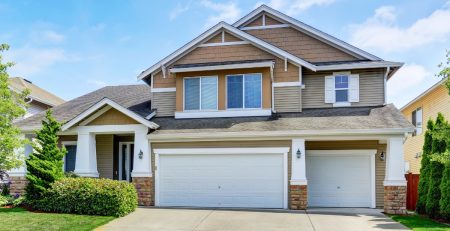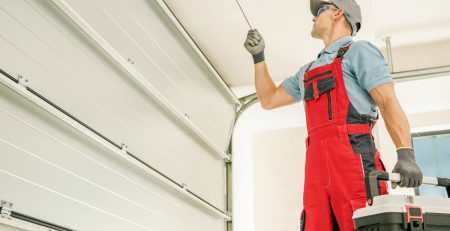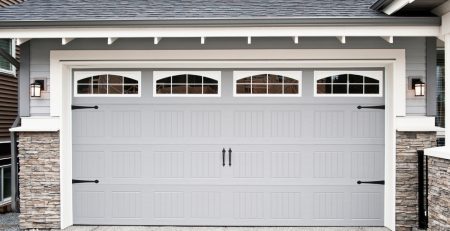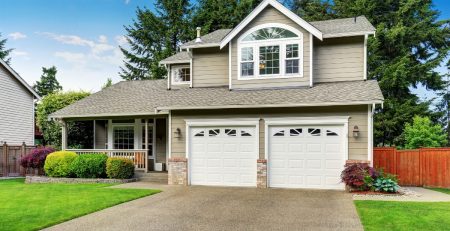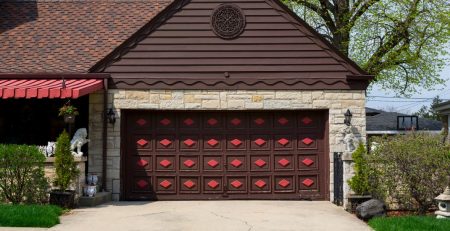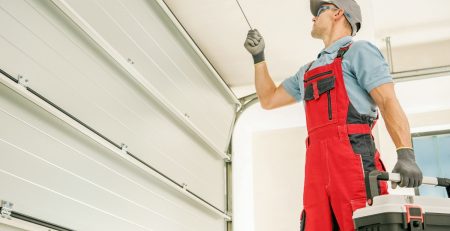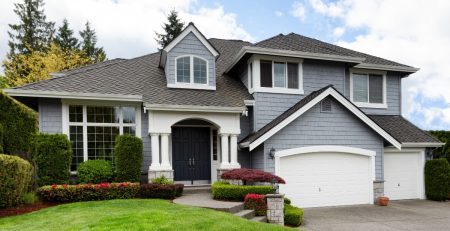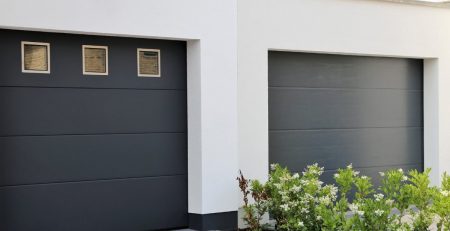Residential vs. Commercial Garage Doors – Understanding the Differences
Your garage door is vital to your property, providing security, climate control, and access. But there’s a big difference between the garage doors you use at home and the ones you see at warehouses or fire stations. This comprehensive guide will explore the fundamental differences between residential and commercial garage doors and help you choose the right one for your needs.
Built to Withstand: Durability and Materials
One of the most striking distinctions between residential and commercial garage doors lies in their materials and overall construction. Residential doors, while functional, are often designed with aesthetics in mind. They come in various materials like wood, steel, and fiberglass, each offering a balance of affordability, curb appeal, and insulation.
Commercial garage doors, on the other hand, prioritize strength and durability. They are typically constructed from heavy-duty galvanized steel or aluminum, making them resistant to dents, scratches, and even minor collisions from forklifts or trucks. These doors are built to endure constant use and harsh weather conditions, a necessity in commercial settings.
Material Breakdown
- Residential: Wood, steel, fiberglass (offering a range of aesthetics and insulation levels)
- Commercial: Galvanized steel, aluminum (prioritizing strength and durability)
Size Matters: Accommodating Different Needs
Residential Doors: Standard Sizes for Cars
Another crucial factor to consider is the size of your garage door. Residential garage doors typically come in standard sizes to accommodate a single car, two cars, or even three cars in larger homes. These pre-defined sizes ensure a streamlined installation process and cater to the most common residential garage configurations.
Common Residential Garage Door Sizes
- Single car: 8′ x 7′
- Double car: 16′ x 7′
- Triple car: 24′ x 7′
Commercial Doors: Designed for Bigger Needs
On the other hand, commercial garage doors are built to handle much larger vehicles and equipment. They come in a broader range of custom sizes, often exceeding 10 feet in height and reaching widths up to 20 feet or more. This allows them to accommodate delivery trucks, buses, emergency vehicles, and other oversized machinery in warehouses, fire stations, and industrial facilities.
Operation Efficiency: Built for Frequent Use
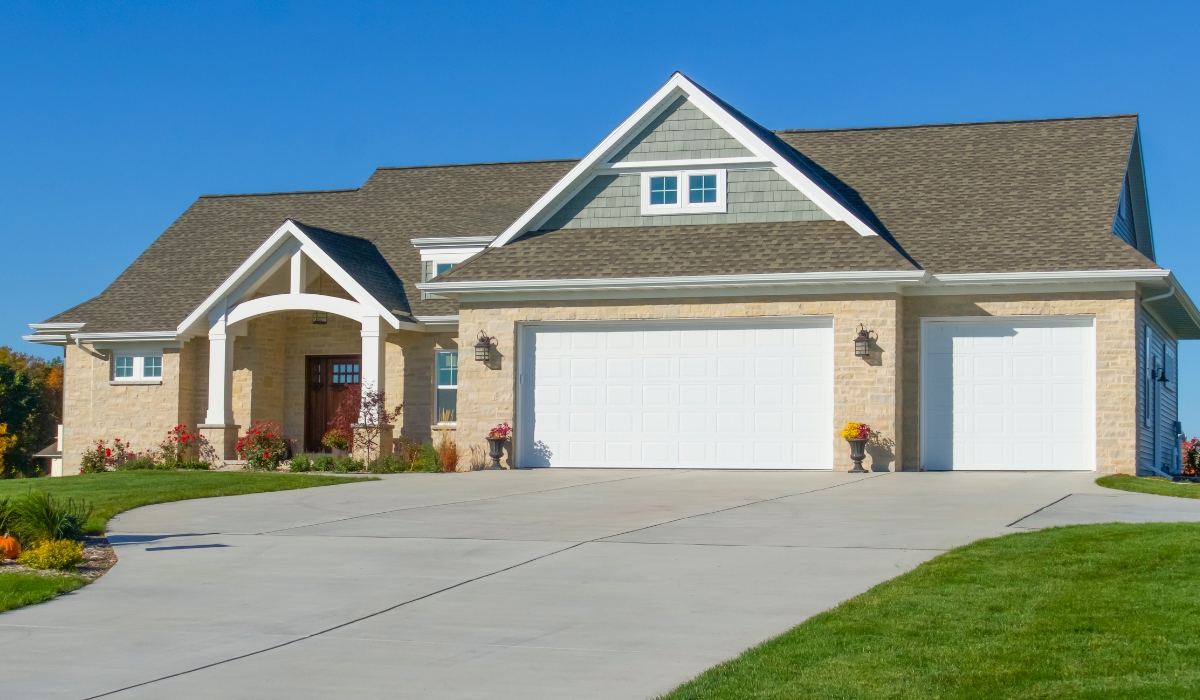 Residential Doors: Designed for Occasional Use
Residential Doors: Designed for Occasional Use
Another key differentiator is how a garage door operates. Residential garage doors are designed for occasional use, typically opening and closing a few times daily. They utilize standard torsion spring systems and residential-grade openers sufficient for these low-cycle applications.
Commercial Doors: Built for High-Cycle Operation
Commercial garage doors, however, are built for a much higher operating frequency. In busy commercial environments, they may open and close dozens or even hundreds of times daily. To handle this heavy workload, commercial doors employ heavy-duty torsion springs and industrial-grade openers. These openers are designed for speed, efficiency, and continuous operation, ensuring smooth and reliable door movement.
Additional Considerations for Operation
- Safety Features: Both residential and commercial doors can incorporate safety features like auto-reverse mechanisms and safety sensors to prevent injuries. However, commercial doors may have additional safety protocols due to the higher risk factors in industrial settings.
- Insulation: Insulation is an optional feature in some residential doors, but it’s more prevalent in commercial settings. Insulated commercial doors help regulate temperature and maintain energy efficiency within large warehouses or workspaces.
Security Matters: Protecting Your Assets
Residential Doors: Standard Security Features
Residential garage doors have standard security features like deadbolts and automatic locking mechanisms. These provide essential protection for your vehicles and belongings stored inside the garage.
Commercial Doors: Enhanced Security Measures
Commercial garage doors prioritize advanced security measures due to the higher value of equipment and inventory often stored within. They may incorporate features like reinforced steel panels, high-security locks, and keyless entry systems. Additionally, some commercial doors come with integrated security cameras or alarms for enhanced protection.
Weatherproofing Your Garage: Insulation and Climate Control
Residential Doors: Insulation Options for Comfort
Residential garage doors offer varying degrees of insulation depending on the chosen material and design. Insulated doors help regulate temperature within the garage, making it more comfortable during extreme weather conditions. This can be particularly beneficial if your garage is attached to your house and you want to maintain a consistent temperature.
Commercial Doors: Balancing Climate Control and Energy Efficiency
Commercial garage doors often prioritize insulation to maintain a controlled environment within the workspace. This is crucial for facilities that store temperature-sensitive materials or require specific working conditions.
Considerations for Residential vs. Commercial Garage Doors
Here are some other factors to consider when choosing between a residential and commercial garage door:
- Aesthetics vs. Functionality: Residential doors offer a wider variety of styles and finishes to complement your home’s exterior. Wood and fiberglass doors can provide a more aesthetically pleasing look, while steel doors offer a good balance of functionality and affordability. On the other hand, commercial doors prioritize functionality and durability over aesthetics. They typically come in a more limited range of styles, often focusing on galvanized steel for its strength and resistance to the elements.
- Maintenance Needs: Both residential and commercial garage doors require regular maintenance to ensure smooth operation and longevity. However, commercial doors, due to their heavy-duty construction and frequent use, may require more frequent maintenance checks and adjustments. This might involve inspecting and lubricating springs, opener components, and safety sensors.
- Cost: Residential garage doors are generally more affordable than commercial doors due to lighter materials and simpler designs. The price of a residential door will depend on factors like size, material, insulation level, and brand. On the other hand, commercial doors come with a higher price tag due to their heavy-duty construction, larger sizes, and advanced features.
- Local Regulations: In some areas, building codes or regulations might dictate the type of garage door you can install. It’s always best to check with your local building department before deciding.
Choosing the Right Garage Door for Your Needs
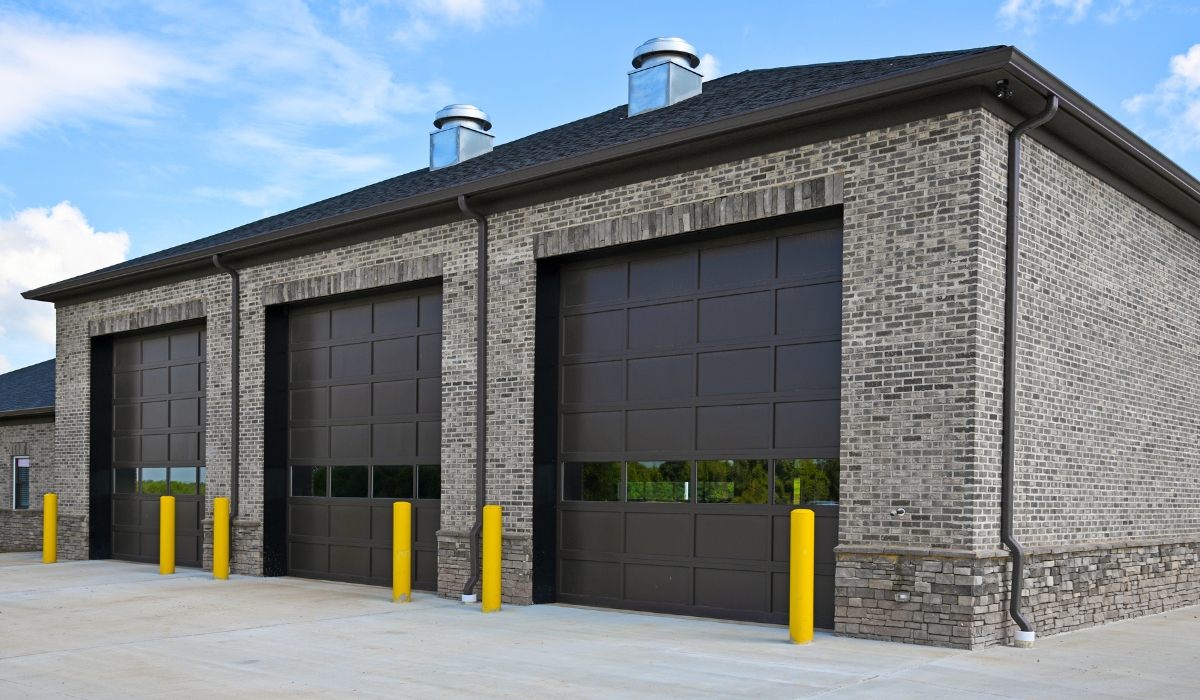 Now that you understand the critical differences between residential and commercial garage doors, you can decide which type is right for you. Here are some key questions to ask yourself:
Now that you understand the critical differences between residential and commercial garage doors, you can decide which type is right for you. Here are some key questions to ask yourself:
- What is the primary function of the garage? Is it for storing a car or two, or will it be used for a workshop, storage unit, or business needs?
- How frequently will the garage door be used? Residential doors are suitable for occasional use, while commercial doors are built for high-cycle operation.
- What level of security is required? Residential doors offer basic security, while commercial doors can provide advanced security features.
- What is your budget? Residential doors are generally more affordable than commercial doors.
- Do you have any aesthetic preferences? Residential doors offer various styles, while commercial doors prioritize functionality.
When to Consider a Commercial-Grade Garage Door for Your Home
In some situations, a homeowner might opt for a commercial-grade garage door for their residence. Here are a few examples:
- Storing high-value vehicles or equipment: If you store classic cars, motorcycles, boats, or other valuable equipment in your garage, a commercial door with enhanced security features might be a wise investment.
- Using the garage as a workshop: If you use your garage extensively for woodworking, metalworking, or other hobbies that require heavy machinery or generate much dust, a commercial door can provide better durability and withstand wear and tear.
- Running a home-based business: If you operate a business out of your garage, a commercial door can offer the security and functionality you need for a professional environment.
Your Trusted Partner for Garage Door Repair, Replacement, and Installation
At Gulliver Garage Doors, we understand the importance of choosing the right garage door for your needs. Whether you require a residential door for your home or a commercial-grade door for your business, our team of experts can help you select the perfect solution. We offer a wide range of high-quality garage doors from trusted brands and professional installation, repair, and maintenance services.
Contact Gulliver Garage Doors today for a free consultation and quote. We proudly serve the Edmonton area and are committed to providing exceptional customer service and top-notch garage door solutions.


